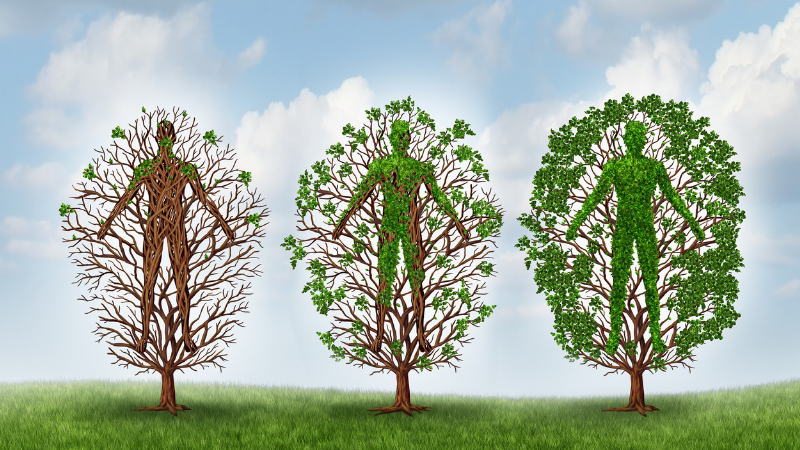I Don’t Want to Be a Burden
One thing we talk about in my support groups is the importance of reaching out to people for assistance. Inevitably, someone chimes in on why they don’t reach out: “I don’t want to be a burden to my family and friends.”
I was curious where the terminology of “being a burden” came from so I did some research. Hours later, I can’t find an origin. What I’ve noticed is that usage of the phrase seems to have increased in the past 30 years. I don’t know if that’s the result of a political movement to the right, a hangover from a prior era, or if it originates from another part of US culture.
What I do know is that this phrase has permeated the mental health community. Mental illnesses already isolate us, and the worry of becoming a burden only exacerbates the challenge.
As I get more comfortable using the skills I’ve learned on my journey, the errors in this thinking become more evident to me.
Fortune-Telling
First of all, a Cognitive Behavioral Therapy (CBT) exercise tells us that when we use this phrase, we are fortune-telling. We are predicting that our needs will cause a specific and undesirable outcome.
Sometimes, we’ve received this message from our network, especially as children. It may be a parent that tells us how “needy” we are or huff when we ask for help. Other times, it’s someone we consider a good friend telling us to “get your stuff together” or making snide comments.
These experiences tell us more about the relationship and the other person than it does about us.
People who care about us are invested in the relationship and make time and room for us. That includes taking phone calls, getting together, and supporting us when we are struggling.
Mind-Reading
CBT also points out that the worry of “being a burden” involves mind-reading. We are assuming that the other person is too busy for us, or that they are uninterested or unwilling to assist.
When we mind-read, we deny agency to the other person. We deny them the opportunity to support us and love on us. We make their decision for them, and I can’t think of a bigger insult.
We are adults, and empowered and capable of deciding how we want to spend our time and energy. Acknowledging this truth shows our respect and trust for the other person.
Intimacy Is Founded on Vulnerability
Sometimes, our fear of being a burden stems from a fear of being vulnerable or appearing weak. We don’t want to weaken a relationship with our neediness, disorders, or drama.
While fun and happy times are part of every healthy relationship, they are not the foundation. The best relationships are built on intimacy, and intimacy means being vulnerable.
We all want people we know are in our corner. People who will walk with us through our darkest times. Getting there means sharing that we are in a dark time; intimacy doesn’t exist where we close the door on it.
One Person Can Meet All Our Needs
All this said, it is a rare person who is available and able to support us in every crisis. Some crises require skills, wisdom, or experience that the other person simply doesn’t have.
For this reason, it is important and valuable to develop multiple relationships. I adore my husband, but he cannot relate to the challenges of a hypomanic or depressive cycle. For support, I turn to the Facebook group, my support group, and other friends who have bipolar disorder.
However, Dan is really strong at managing family relationships. He is my first and best sounding board when my crisis involves someone in my family-of-origin or a parenting issue.
When my emotions are bigger than my ability to manage them, I turn to my therapist and friends to walk with me through it.
When my sister died, many friends surrounded me – but no one friend was with me all the time. As they had the time and opportunity, each showed up and comforted me. Sometimes we were a group; others, we were one-on-one.
In this way, no one person bears the burden of being my sole comforter, my sole support, or my only outlet.
There Is No Such Thing As a Burden
As we consider the messages hidden in the phrase “being a burden,” we recognize it for the false message that it is. We can’t be a burden to those who love and care for us; they decide what support they are in a position to give. They can choose to walk away or end the relationship at any time they want, just as we can.
The fact that they haven’t means they are invested in us and our relationship. Moving forward in faith and trust is a sign of our growth and mutual respect. They deserve it, so let’s grant it.
Have you worried about being a burden to your friends or family? Why?
Looking for daily inspiration and community? Join our warm and supportive Facebook group!










This is a great piece!
I think if we have been let down in times of distress /despair before, we may be reluctant to trust others again.
We just need to develop a better system at discerning whether a person is worthy to confide and rely on.
There are people that I can only talk about certain things with and that’s okay.
Thank you Teresa for being there when I felt down or confused.
I’m here for you too!
Thank you for the kind words, Robin! I totally agree about all those reasons why we may be reluctant to trust others. People are human and human means imperfect and imperfection means hurt. It’s unavoidable.
I’m always happy to help and support any time and any one I can!